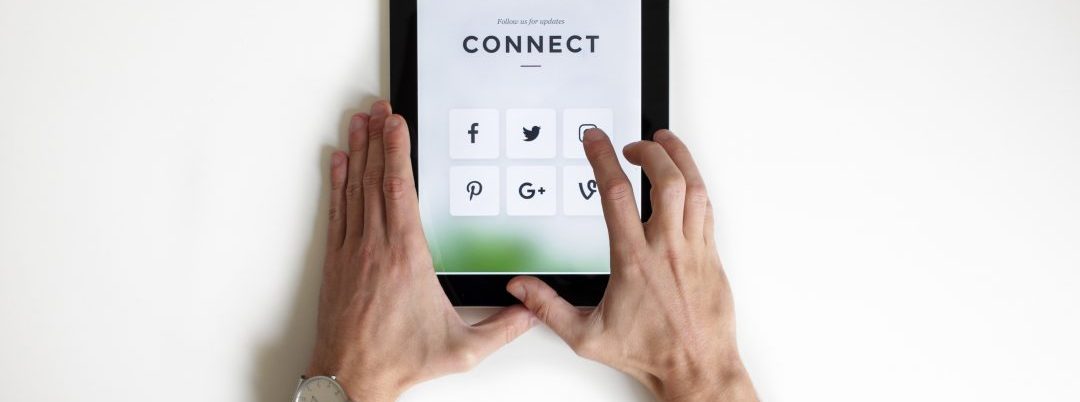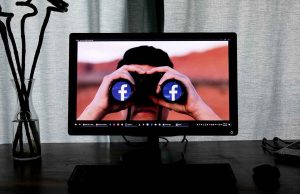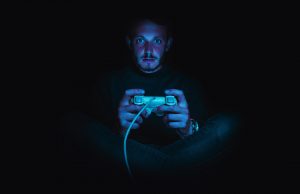
If you’re an avid social media user—say of Facebook, Instagram, Twitter, Snapchat, or all of the above—you’ve probably wondered at some point in your life if your habits would be considered healthy… or if there might be some room for improvement. Fortunately, Licensed Professional Counselor Julie Williamson is here to address that question, dive into healthy and unhealthy social media habits, and ultimately help you perfect this tricky balancing act.
Healthy Social Media Habits
Some might say that the healthiest social media habit is to not engage on these platforms at all, considering all of the negative effects that can result, but Williamson knows this isn’t so realistic in today’s world. Instead, she says “using social media for the purposes of advertising, connecting, networking, and keeping in touch with friends are all healthy uses of social media.” Let’s break these functionalities down a little:
Advertising: For some jobs, social media engagement comes with the territory. People like social media coordinators and copywriters utilize social media platforms every day, as do others like salespersons and even landscapers for advertising purposes. Williamson says this is an example of healthy social media use and likely doesn’t come with any harmful effects.
Connecting: This is the sole purpose of social media, right? To stay connected. Keep this purpose in mind when you engage on social media, as it’s easy to get sucked in and fall down the rabbit hole of Instagram or Facebook, and you should be good to go.
Networking: Social media platforms are also great tools for networking. If you’re a big foodie, for example, following other foodies on Instagram can inspire you to cook new meals and also enable you to collaborate with these individuals who share the same occupation or passion as you.
Staying in touch: And finally, social media enables you to stay in contact with people who you could potentially lose touch with otherwise. If you’re taking advantage of this functionality of social media, you’re doing it right.
Unhealthy Social Media Habits
Now, when does social media use get a little out of control? “Social media use becomes unhealthy when we notice our emotional and relational health seems to be hurting,” Williamson explains. “It’s no secret that we post our best or ideal selves on social media, which can give the impression to others that we are perfectly content and happy with our lives. When we view someone else’s post who seems to have it all together, we may draw comparisons between their life and ours, causing us to feel separate and different from that person. If we are feeling that way with every post we look at, feelings of isolation and loneliness can set in.”
She goes on to say that it’s also not a good sign if all of your social interactions start to happen online or if your social media use is getting in the way of your daily routine: “Additionally, social media habits can become unhealthy if the ONLY connections we’re having with others is via social media rather than face-to-face. Also, social media can become unhealthy if it’s causing distraction to the point of us not accomplishing important tasks or if we’re bored or procrastinating.”
A Happy Medium
And finally, how can you knock those bad habits and ensure you’re only benefiting from your social media engagement? You can tweak Williamson’s suggestions to best fit your lifestyle, but she suggests the following…
- Deleting apps from your phone
- Engaging with a purpose
- Turning notifications off
- Designating time for your social media engagement:
Williamson delves into the above guidelines: “I recommend removing apps from your mobile devices so that you’re only able to check Facebook, Twitter, Instagram, etc. on your laptop or desktop. I removed the Facebook app from my phone when I became discouraged with all of the negativity floating around, which was incredibly helpful in decreasing my use of Facebook. Now, I may only get on Facebook once a day, and it’s only to check notifications for some of the groups I belong to or for my business page.
Remove alerts, email notifications, etc. when someone has liked or commented on your posts. For me, these alerts were driving me insane! I would be in the middle of a task, see the alert, and then not be able to think about anything else until I checked out my profile. Designate social media times. Decide when you will check your social media accounts and when you will not. For example, if you’re at work, you may decide to wait until your lunch break to check your profiles. Or maybe set a time once in the morning and once in the afternoon. If you are tempted to procrastinate and automatically resort to checking your accounts, designate other activities you can do when bored or procrastinating, like doodling with fun pens, taking a walk, or stopping at a coworker’s desk.”
Let’s keep in touch! Sign up to receive our newsletter:
Start a Relationship with An Exceptional Counselor
- Skilled and caring professional counselors
- Accepting all major and most insurances
- High-touch customer service & premium benefits
- Same- or next-day appointments
- Ultra-flexible 23.5hr cancellations













